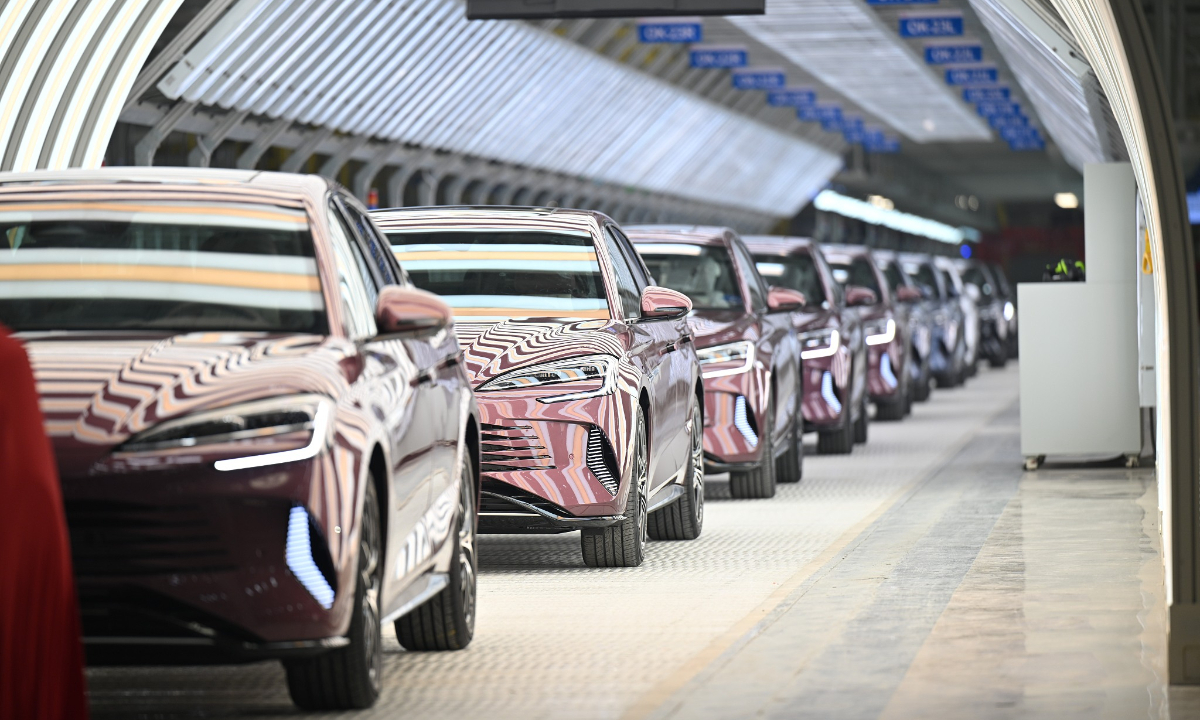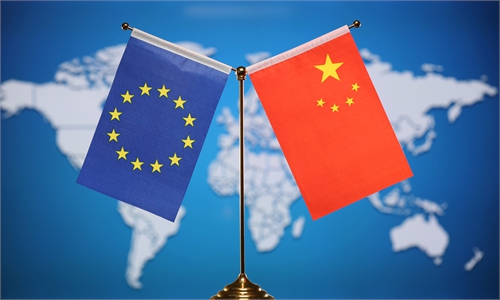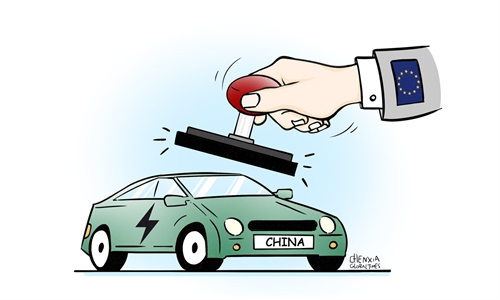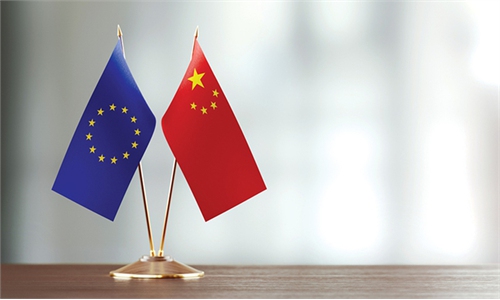
EV Photo:VCG
Chinese-made electric vehicles (EVs) were subject to a special customs registration process starting from Thursday by the European Commission (EC), as the EU is moving closer to adopting new protectionist measures such as punitive tariffs targeting Chinese EVs in the bloc.The China Chamber of Commerce to the EU (CCCEU) on Wednesday evening voiced its disappointment with this move, according to a statement the chamber sent to the Global Times.
The mandate may have some impact on EV exports to Europe, as it may possibly be followed by punitive tariffs, according to experts and media reports. However, the impact will be short-term and limited, as the EU still needs Chinese EVs for its green transformation, a Chinese industry expert said Thursday.
The EU issued on Wednesday the Official Journal of the EU regarding its commission's implementation regulation that makes imports of battery EVs designed for passenger use originating in China subject to registration.
This regulation shall enter into force on the day following that of its publication in the Official Journal of the EU, according to the Official Journal of the EU.
The CCCEU said that the chamber has observed that a new implementation regulation was issued on Wednesday, concerning the registration of EV imports from China by the EU. The purpose of the registration requirement is to address Chinese imports and potential retrospective measures, the chamber said.
Both the chamber and its members expressed concern over potential retroactive measures in the future, the CCCEU said.
According to EC data, between October 2023 and January 2024, the EU imported 177,839 Chinese EVs. Compared with the coverage period of the "countervailing investigation" (from October 2022 to September 2023), the average monthly import volume increased by 11 percent.
The chamber highlighted that the recent surge in Chinese EV imports reflected increasing demand for EVs in Europe and underscored Chinese car companies' commitment to fostering the European market.
"We earnestly hope that the European side will effectively safeguard the legitimate rights and interests of Chinese enterprises and establish a fair, impartial and non-discriminatory business environment for them," the China chamber said.
"This, in turn, will facilitate our joint contribution to the global low-carbon and green transformation," the chamber further noted.
In February, China's Minister of Commerce Wang Wentao said that China is highly concerned about the trade remedy investigation targeting Chinese EVs and other products, and he also expressed strong dissatisfaction regarding the investigation, which he said lacked a factual basis.
The EU's latest move came in response to alleged subsidies for EVs by the Chinese government, even though China has largely ended early-stage NEV subsidies.
Subsidies for both public buses and private passenger cars stopped in 2022, Cui Dongshu, secretary-general of the China Passenger Car Association, told the Global Times. "When there were subsidies in China, they were on a much smaller scale than those in European countries."
The EU's action aimed at Chinese EVs was much as expected as part of its trade protectionism measures against China, Cui said.
The customs registration targeting Chinese EVs could be an initial step, and it's likely to be followed by further measures such as punitive tariffs, he warned.
Despite the foreseeable impact on Chinese EVs exported to Europe, Cui said that it will only be temporary and won't undermine the competitiveness of Chinese EVs in the global market.
China is the world's largest car exporter, having surpassed Germany and outpacing Japan. By destination, the EU held the majority share, accounting for 47 percent of China's EV exports in value last year, according to a report by Citi Research in January.
As the EU is in great need of more cost-effective and high-quality products for its green transformation, demand will only grow stronger in the long run, Cui said.



